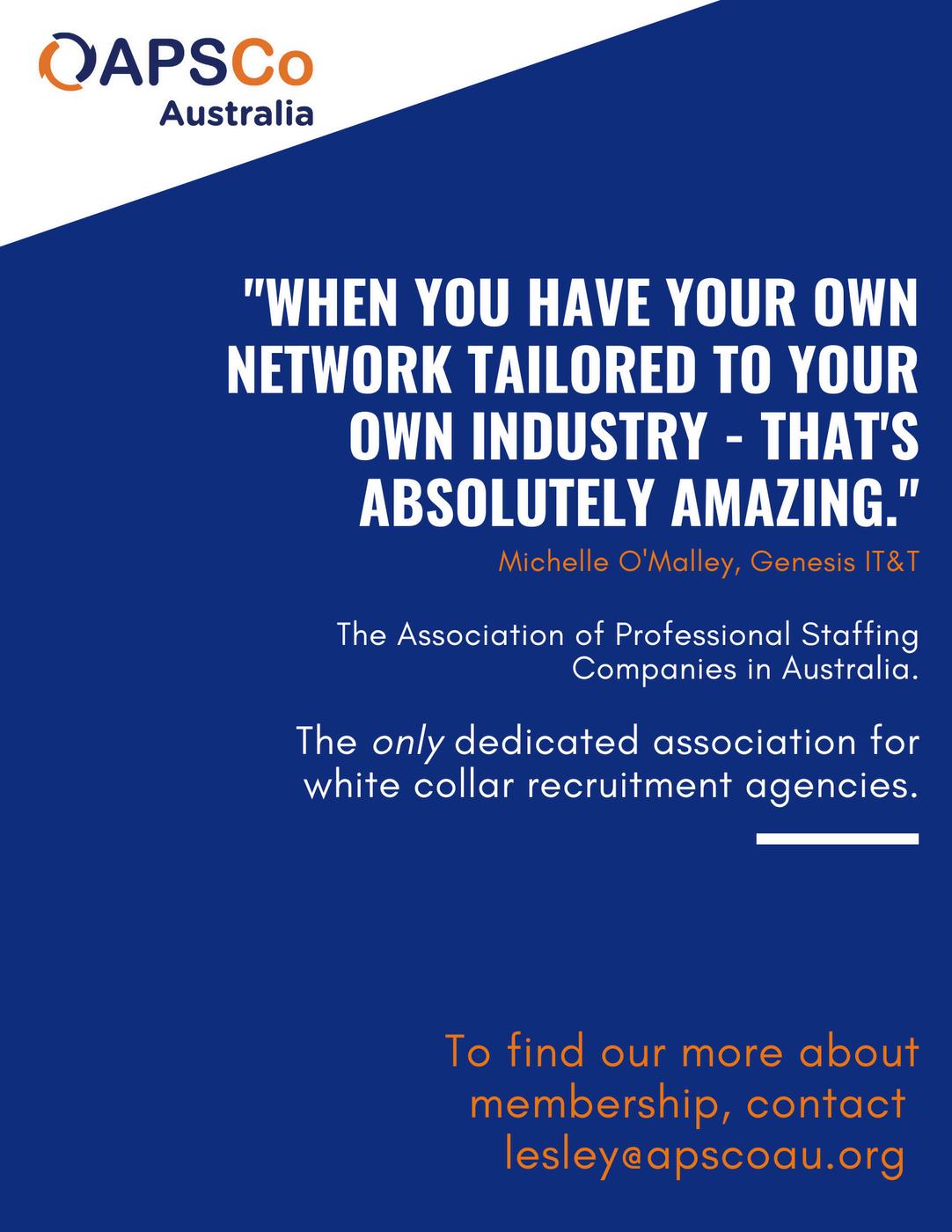RECRUITMENT RECRUITMENT&&CO CO































What to declare as part of Remuneration - April 30
Online webinar
You're invited to join Mark Farrugia, National Workers’ Compensation Manager at APSCo partner, Safescope, as he shares his insights and knowledge on what to declare as part of Remuneration
Sophisticated Sales Training Program - May 1
Canberra, ACT
Elevate your recruitment agency's sales game with One Recruiter's Sophisticated Sales program
WA Member Meeting - May 2
Perth, WA
APSCo invites all professional staffing business leaders, along with their senior staff in Perth to attend our upcoming Member meeting on May 2
WHS Assessment Training for On-Hire Firms - May 7
Sydney, NSW
Join us for a comprehensive full-day in-person session in Sydney Don't miss this opportunity to ensure your team is fully prepared to perform Host WHS Assessments
Offshoring Unwrapped - May 7
Online webinar
Join APSCo for an in-depth webinar with Amit Somaiya, Group CEO and Co-Founder of IMS Group and Rod Hore, Director of HHMC Global to unpack the realities of offshoring and reveal its potential for successful collaboration
Emerge 2024 - May 30
Conference: Darling Park, Sydney, NSW
Emerge 2024 is back with a powerhouse of content and speakers that will tackle the key themes impacting the professional recruitment market over the coming months and years
Your guide to good governance in recruitment - June 18
Canberra, ACT
As the complexity and compliance of running a recruitment business continues to tighten, Directors face significant penalties and impact to business operations without good governance
For more information and to register, visit www.apscoau.org
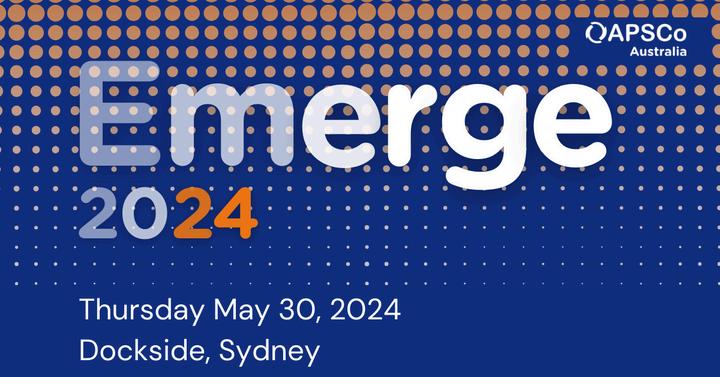


9 What’s in store for the 2024 hiring market? by Anthony
Global Talent Engagement: Big Opportunities for Staffing and Recruiting Firms
Recite Me introduce Inside Accessibility: A gateway to inclusive online spaces 22 The future is digital for Contract Management Systems – and AI will be taking charge


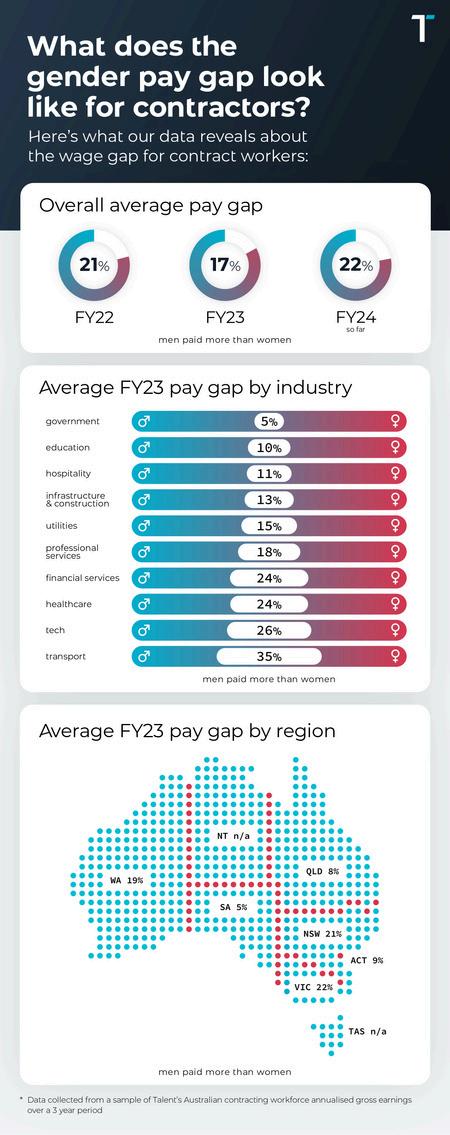
While the market may have cooled, the heat has certainly turned up a notch for APSCo. With legislative change afoot, the need for Members and the broader profession to get their proverbial house in order and fine tune processes, contracts and people is well and truly in the spotlight.
 Lesley Horsburgh Managing Director APSCo Australia
Lesley Horsburgh Managing Director APSCo Australia
Everywhere we turn there’s disruption; Government departments and procurement teams, safety authorities, the ATO, margin pressure, technology and AI, business development skills, operating expenditure – the list is endless
I recently spoke at Bullhorn’s conference Engage about some of these very same topics and while I understand that there’s a very real pressure, I feel strongly about reminding businesses not to panic Yes, there’s always a headline to be had if the message is alarmist or creating fear but there’s sense in applying a level of pragmatism and not losing yourself (and your focus) in a whirl of ‘what if’s’
Change is a constant and in a compliant rich environment we’re never getting off lightly but with a little logic and a calm head we will all learn to play the cards we are dealt – step forward APSCo – this is the very reason in my eyes that we exist. Yes, we are a voice to Government, yes we will advocate for change but when push comes to shove – our primary role is help each and every member navigate through whatever market conditions we find ourselves in with the comfort that they can stay compliant and focus on BAU.
Now is the time to get your contracts in shape, lean on your network and ensure all your relationships are intact, the rest I promise will follow.
LESLEY HORSBURGH APSCo Australia Managing DirectorTogether with Mercury and LinkedIn, last month we brought together respected leaders in recruitment and tech to share their experiences, challenges, and the triumphs of women in leadership.




Lesley Horsburgh
Managing Director, APSCo Australia RECRUITMENT FACILITATOR

SPEAKER
Sharmini Wainwright
Co-Head of AUS/MD, Michael Page





SPEAKER
Stephen Smith
Founder/MD, Sirius People
Head of SA, Paxus SPEAKER
Maria Zannis



SPEAKER
Lisa Morris CCO, Hays Recruitment
Linda Jukes

Head of People, Growth and Development, Mercury TECH FACILITATOR


SPEAKER
Yasameen Raissinia
Director of Enterprise Commercial Sales, Smartsheet
SPEAKER
Clara McCarthy
Head of Staffing ANZ, LinkedIn

SPEAKER
Gemma Lloyd Co-Founder/CEO, WORK180

SPEAKER
Kirsten Kore
Co-Founder and Co-CEO, Designerex





Speaking to many of our members over recent weeks, it’s incredibly apparent how complex the current landscape is for recruitment companies, with some saying this is the toughest market they recall working in.
 Danielle Watterson APSCo Membership Account Executive
Danielle Watterson APSCo Membership Account Executive
Between challenges such as seemingly constant legislation changes, margins under scrutiny, unpacking what AI and automation mean for both people and processes, along with redundancies in some industries and ongoing skills shortages in others, most are feeling it in one way or another. Reflecting on my first couple of months with APSCo, I’m proud to be working for an organisation which genuinely cares about the members and industry it represents; on my first day in-role, I recall Lesley saying ‘we are our members’ at APSCo, which is clear in the actions of the whole team and something I continue to reflect on.
We’re committed to supporting members however we can, whether that’s political lobbying on behalf of the industry, advice on a particular issue, locating a resource, connecting you with one of our partners – or anything in-between! Times are clearly tough overall, but there’s still so much to be positive about within our membership, in the last couple of weeks alone I’ve spoken to members who are looking to grow their teams to meet client demand, expand into new sectors, and those looking to invest in their teams through additional training despite a tricky market
Something else which has struck me during early conversations is the loyalty of our members, many who’ve been with APSCo from the beginning There’ll be more to come on that later this year, as we’d like to give more thanks and recognition to our members who continue to raise the bar and lead by example, who’ve demonstrated their continued commitment to best practice in the industry
We’ve so much more to come this year too, with a host of projects and plans in the pipeline. Emerge is just around the corner in May, with a fantastic speaker line-up tackling lots of the key topics I hear our members talking about regularly; I’m look forward to spending the day listening, learning, and catching up with many of you there.
Well, the good news is it is highly unlikely, but Ai and automation will play a pivotal role in empowering our work, roles, and lives. This is moving at an intrudingly fast pace and is just in its infancy stages.
 John McCluskey Managing Director Whizdom APSCo Director
John McCluskey Managing Director Whizdom APSCo Director
I was fortunate enough to attend the LinkedIn Talent Connect in February and found it extremely enlightening, frightening and sometimes comforting with the data and presentations
Ai will be the biggest shift in the way current work is done and is expected to impact 65% of skills by 2030 Incredibility 25% of most current roles could over the short to medium term be done by Ai with a focus on the repetitive and process aspects of roles Does this mean that 25% of our workforce will be reduced or more likely change focus on the more human parts of business that require empathy?
Jobs post the depression were heavily reliant on “muscle”, then we seemed to move into more “brains”, and now with AI and the huge access it has to data, their appears to be greater focus on heart and empathy. This is the good news as Ai wont he able to replace the human side of roles. It was interesting from the LinkedIn conference that the number one skill required for most new roles is communication and people skills.
What is clear, most roles will be impacted and hopefully in a positive way for us to focus on the communication, relationships and human sides of our businesses which has largely been impacted and neglected during the COVID years. This also creates the opportunity for new industry and roles with skills in Ai and machine learning. Demand will be greater than supply for many years as we train this workforce of the future.
PS Just for info this article was written by a human and not chatgpt
The early signs are that it is likely to remain a candidateshort market, with a greater sense of caution due to rising interest rates and inflation. Employers are cutting costs and streamlining their workforces, resulting in slower market movement.
 Anthony Whyte General Manager, Talent APSCo Director
Anthony Whyte General Manager, Talent APSCo Director
Candidates are increasingly seeking security and stability in their roles, and upskilling is essential to remain competitive. Companies are becoming more discerning about the positions they are hiring for and are placing more weight on retaining top performers rather than hiring externally. Despite tech layoffs resulting in an influx of talent in the market, competition remains fierce for top talent. To attract candidates, employers need to go beyond offering competitive salaries and consider factors such as a rewarding work environment, flexibility, benefits & perks, and opportunities for progression.
Businesses are likely to face a cautious hiring market in 2024. The market is expected to be affected by rising global inflation, resulting interest rate rises, and the ongoing impact of the Ukraine war on supply chains. This has led to a knock-on effect on organizations' hiring confidence, with some employers taking a cautious approach and implementing hiring freezes As a result, it is critical that businesses have a clearly defined Employee Value Proposition (EVP) to help attract and retain top talent Think about how you would articulate the following to prospective candidates: Remuneration; Benefits; Career Development; Health & Wellbeing and Purpose
The industries most affected by cybersecurity and are at higher risk of data breaches and cyber hacks are those that handle sensitive data These industries include technology, finance, education, healthcare, and government sectors. The priority of cybersecurity is now either the first or second agenda item in company board meetings, indicating its critical importance across various industries. The demand for cybersecurity professionals is expected to grow as companies look to secure their data and protect their technology systems and demand for Chief Information Security Officer; Security Analysts and Cyber Security Engineers remains high.
The "flex debate" encompasses a wide range of flexible work arrangements beyond the binary debate of work-from-home versus office. It includes remote work, flexible hours, compressed workweeks, job sharing, part-time work, flexible scheduling, annualised hours, zero-hour contracts, hot desking, job redesign, phased retirement, and more. The debate is constantly evolving and is far more nuanced than a simple yes or no question. It involves understanding what drives people's need for flexibility and how to marry that with business needs to optimize performance The advice for 2024 is to embrace the diversity of flexible work arrangements and to recognize that flexibility extends beyond binary options, fostering a culture that values adaptability
The hiring market is shifting from being employee led to being employer led The current tech hiring market is seeing a shift from a candidate-driven market to a more employer-led market. This shift is due to an influx of candidates in the market as a result of recent layoffs. However, despite this shift, the demand for top tech skills remains high, and competition for top talent is still fierce. Employers are advised to act fast in their recruitment processes and offer compelling employee value propositions to attract and retain top talent The market is evolving, and it's important for companies to go beyond offering competitive salaries and consider factors such as a rewarding work environment, flexibility, benefits, and opportunities for progression
For more detailed insights, please see Talent’s More than Money salary guide here.


Active across a range of sectors throughout Australia, the Gadens team is focused on providing commercially-targeted, timely and efficient legal advice. With expertise across all areas of employment law, industrial relations, and occupational health and safety, we have an established track record advising across all aspects of the employment cycle from strategy and recruitment through to termination.
Contact Gadens’ Workplace Advisory and Disputes team to discuss any queries. We are here to help.

GeorgeHaros

WilliamMarshall

Following on from the Workplace Gender Equality Agency release of the gender pay gap within Australia recently, Talent has released insights on the gender pay gap within the contractor workforce.
The data was compiled using a sample of Talent’s Australian contracting workforce annualised gross earnings over a 3-year period
The key trends that have been observed are:
From period 1st of July 2023 – 29th of February 2024, the median monthly gross remuneration sat at +27.43% in favour of men.
From period 1st of July 2023 – 29th of February 2024, the average monthly gross remuneration sat at +21 53% in favour of men
For period 1st of July 2022 – 30th June 2023, the average monthly gross remuneration for the following industries:
Financial services – 24.16% in favour of men. Professional services – 17.83% in favour of men. Tech – 26.48% in favour of men. Healthcare – 23.92% in favour of men
Talent have observed different factors that impact the gender pay gap for contractors which include fewer women in STEM careers with enough on-thejob learning to fulfill business needs; career gaps for motherhood leading to fewer years’ experience as contractor rates are directly linked to years of experience.
Matthew Munson, Talent Managing Director NSW, commented on the findings, “To create true equality it’s crucial that we are highlighting the gender pay gap and educating leaders on why it matters
Pay parity should be just as important to these leaders with their contractors as it is to their permanent employees.
Here at Talent, our vision is to empower people to build a better world of work for all, and this is just one factor of that ”












APSCo Australia's full-day conference for recruitment and staffing leaders
1 day
16 Speakers
3 Keynotes
3 Panel sessions
2 hours of executive networking

APSCo Australia's full-day, face-to-face conference, Emerge 2024 is back with a powerhouse of content and speakers that will tackle the key themes impacting the professional recruitment market over the coming months and years.
Held at Sydney's Dockside, Emerge 2024 will bring together an impressive speaker line up that offers experience, expertise, insight and influence - all brought to life in interactive panels and keynote sessions.
We will take attendees on a deep dive into business critical topics
New Market Conditions, Global Outlook & International Lessons, The Leadership Conundrum, Diversity, Equity & Inclusion (DE&I), Technology & AI in Recruitment and lastly, The Future of Work
Attendees will walk away from Emerge 2024 with cutting-edge insights, practical strategies, and valuable connections you need to transform your business, and shape the future of our industry.
This year there's no need to worry about low battery with our very-own on-site charge bar courtesy of Astute Payroll by Deel!
Attendees will also benefit from plenty of caffeine and fresh juice to power on through the day available from the Bullhorn coffee cart and JobAdder juice cart.
A big thank you also to TargetRecruit AU as Gold Sponsor, IMS Group as Silver Sponsor, SEEK as our Bronze Sponsor, and People2 0 Australia as our Breaks Sponsor.
We are also thrilled to have Dominic Price, Work Futurist at Atlassian speak at Emerge 2024. He is set to offer a refreshing and innovative perspective on the future of work Dom's presentation, The Reality of Modern Work and Building a Thriving Workplace will close the day, and is the perfect way to finish off an inspirational day!
We'll conclude the day with canapes and networking drinks


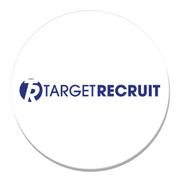






MARTIN HERBST, CEO, JobAdder

CHRISTINE WRIGHT, CEO Bluefin Resources Group
ANN SWAIN, CEO APSCo Global
THOMAS WOODS, Director Woods & Co



DOMINIC PRICE, Work Futurist, Atlassian

BEN RICHARDSON Co-Founder & Executive Director Odyssey Group
RACHEL JONES Managing Director, COLLAR
SAMANTHA MIKLOS, CEO Cornerstone Medical Group

ROSS THOMPSON, Group CEO, PeopleIN

ADAM EDMONDSON CEO & Founder 2cloudnine

STEVEN ASNICAR Director, Diversity Australia

KEVIN O’NEILL Technology Research Director Staffing Industry Analysts


CHRIS ENGLISH CIO Randstad AUN & SEA


TANIA EVANS Founder & CEO

RUSSELL WEBB, Owner & Director, Claverdon Consulting
TONY GEE Senior Manager, Digital Services
The workplace is changing in ways we couldn’t have imagined just one year ago, LinkedIn reports.
The rise of Gen AI, the return to the office, and the increasingly competitive market for top talent with in-demand skills are reshaping the talent landscape
Talent Acquisition (TA) will be at the forefront of helping employers navigate these and other challenges, but the talent playbooks of the past will no longer apply.
As employer priorities shift, TA will need new skills, new tools, and agility to attract, hire, and retain the best talent
To gain deeper insights into what’s ahead for talent acquisition, LinkedIn surveyed thousands of recruiting professionals, spoke with top talent leaders, and analysed billions of data points generated on the LinkedIn platform.
The following are six predictions that will help talent professionals usher in the new world of work:
AI will supercharge recruiting Recruiting will help build the skills-based workforce of the future
Quality of hire will top the recruiting agenda Agility will be a must-have for Recruiting teams will advocate for flex work policies
Attracting Gen Z will require a new playbook
Explore the report here

Large recruitment firms often grapple with the challenge of integrating multiple tools, apps, and technologies to form one system. This complex web of connections can frequently break down, hinder scalability, or leave evolving business needs unfulfilled, leading to fragmented business operations and siloed data systems – a source of significant pain and frustration for long-term operations. TargetRecruit writes.
Enter native integrations, the solution to any tangled web of disconnected technologies. Built seamlessly into the platform, native integrations ensure flawless communication between systems, eliminating compatibility issues and operational inefficiencies
By simplifying the integration puzzle, empowers your recruitment firm to harness the full power of technology working together without the headaches.
Now, let's delve into the advantages of native integrations in recruitment technology:
Seamless Communication:
Native integrations ensure that all systems within your recruitment ecosystem communicate flawlessly, eliminating the need for manual data transfers and minimising the risk of errors or compatibility issues
Enhanced Efficiency:
With native integrations, your team can work more efficiently, as they no longer have to navigate through multiple platforms or deal with interruptions caused by integration breakdowns
This translates into streamlined processes and improved productivity
Unified Data Management:
By centralising data within a unified ecosystem, native integrations enable recruiters to access real-time information without switching between different systems.
This not only saves time but also ensures data consistency and accuracy.
Reduced Complexity:
Native integrations simplify the technological landscape for recruitment firms, reducing the complexity associated with managing multiple tools and applications
This allows recruiters to focus on their core tasks without being bogged down by technical challenges.
Enhanced User Experience: Recruiters can enjoy a smoother user experience, with intuitive workflows and minimal disruptions
This fosters higher engagement and satisfaction among users and promotes adoption across teams.
Scalability and Flexibility: Native integrations are designed to adapt to the evolving needs of recruitment firms, offering scalability and flexibility to accommodate growth and changes in your business.
By streamlining integrations and minimising the need for custom development or thirdparty solutions, native integrations help recruitment firms reduce costs associated with software implementation, scaling IT departments and ongoing enhancements and maintenance
Native software integrations offer recruitment firms a multitude of advantages, from seamless communication and enhanced efficiency to unified data management and cost savings.
Imagine the time saved when you no longer have to manually transfer data between disparate systems or troubleshoot technological hiccups
Your team can redirect their focus to what they do best –recruiting – rather than wrestling with systematic inefficiencies
It's time to embrace a seamless ecosystem that enables your firm to thrive in today's competitive landscape
To discover how native integrations can help simplify your tech stack, contact TargetRecruit to get started today!



For when you need a true enterprise CRM software for your growing recruitment and staffing agency
Built on Salesforce, TargetRecruit is a full ATS/CRM suite, packed full of innovation It’s a business critical tool which is easy to configure and customise to your exact business needs, keeping you ahead of the competition
Empower your recruitment firm with the ultimate CRM
Consider this, more and more sales professionals are leaving large scale recruitment businesses to either join SMEs or go out on their own – which got me wondering, what is driving this?
Years ago, working in a large recruitment business was THE goal. Apply for an international business, start in a Resourcer position, gain exposure to different verticals, progress through the ranks and relocate to another office through the agency network, ultimately changing your life – But is this still the case?
Whilst many recruiters I’m speaking to advocate for the benefits of working at a larger recruitment organisation for the experience and skillset they receive; many are frustrated by the distractions a larger organisation can get lost within
In the ever-evolving landscape of recruitment, there's a constant barrage of movements and trends vying for a business owner / leaders’ attention.
Environmental, Social, and Governance (ESG), Diversity, Equity, and Inclusion (DEI), Artificial Intelligence (AI), and the list goes on. While these are important enablers to build an inclusive workplace, embrace innovation and a sustainable way of working, it's time to recognize that they aren't the fire in the engine that drives a recruitment business forward – SALES is There I said it
Sales is your organisation’s priority – and it is your people’s priority as well. Everyone in this industry is here for various reasons both personally to professionally, intrinsically, and
extrinsically, but above all else, in this industry, you need to sell, convert, execute and deliver value. Your consultants want to be successful, to make money to fund their personal and professional dreams, and it’s up to all recruitment leaders to embrace this and show their teams that they’re there to enable them to do exactly that.
So why are we distracting them from doing what they signed up for?
The best recruitment leaders I’ve seen recognise the power of focusing on the fundamentals –which haven’t changed in decades – proactively reach out to clients, learn their needs, coach candidates well, sell the partnership to the client and execute with value. They understand that success in this industry is about a laser focus on what works – and they communicate that clearly to their teams, so they are laser focused each day.
I am not saying that ESG and DEI are not important topics, they absolutely are. Equally I am not saying AI cannot add value. What I am saying is the fundamentals of recruitment being a sales-oriented business have not changed and it needs to maintain a huge share of voice and time within a recruitment business to ensure the mindset, skills and habits of consultants and leaders are at required levels to be successful.
 Stephanie Healy Founder and Chief Executive Officer at One Recruiter
Stephanie Healy Founder and Chief Executive Officer at One Recruiter
And…there should be no shame in making that abundantly clear to all.
So, to all recruitment leaders and business owners out there, if you aren’t leading sales and talking about it with customers, what EXACTLY are you leading? (and what IMPACT is it having?)
Questions worth pondering.
Hear more from Steph about our upcoming training course for high-performing consultants.
As businesses strive to meet the evolving needs of their clients, having the ability to place talent in any location is no longer a luxury but a necessity. Small to mid-sized staffing and recruiting firms that can tap into this global talent pool have a significant competitive advantage, People2.0 writes.
Global expansion provides firms with a plethora of advantages including access to new markets, which offers more opportunities to place talent and generate revenue It also gives them access to a wider talent pool, both locally and globally This provides access to a more diverse set of skilled candidates, enabling firms to meet their clients' particular needs more effectively.
Not only is expansion good for your bottom line. It’s also good for your optics. Being able to place talent anywhere in the world increases your firm's credibility and reputation in the industry It demonstrates your ability to meet diverse client needs and adapt to global trends and opportunities.
Navigating the complexities of legal and regulatory compliance in different regions can be daunting, even more so when preparing for regulatory changes in specific regions like Australia, where the government is currently implementing the “Closing Loopholes Act” bringing in key changes in the way businesses engage talent.
At People2 0, we take on this challenge, keeping abreast of regulatory change, reducing the risk of penalties and other legal complications. We handle the intricacies of employment contracts, immigration processes, and tax obligations, allowing you to focus on your core competencies and business growth
Our comprehensive suite of services breaks down geographical barriers, opening up a world of opportunities for your business.
Through our EOR and AOR services, we empower businesses to place talent anywhere in the world.
As an EOR, we take on the role of the official employer for tax purposes while the worker is on assignment with your client.
This streamlines the process of engaging talent from various locations, which not only simplifies the administrative burden, but it also provides a cost-effective way to expand your reach and tap into new markets.
For firms looking for administrative support, our AOR services streamline back-office functions and help you efficiently manage and engage independent contractors globally.
We handle the administrative, legal, and compliance aspects of engaging IPROs, allowing you to focus on your core business
Partnering with People2.0 offers numerous benefits.
From cost savings through outsourcing back-office functions to gaining a competitive edge, accelerated growth, and the ability to expand your global distributed workforce, the advantages are manifold.
Are you ready to explore the vast possibilities afforded by a compliance partner?
Contact us to tap into the global talent pool, ensure compliance and drive growth
Recite Me proudly unveils an educational email series, Inside Accessibility, where they address the important issues surrounding online accessibility.
This initiative will break down accessibility information into bitesized chunks to help foster a community that embraces diversity and empowers individuals and organisations with the knowledge they need to make the online world a more inclusive place for all With each email, you will receive an actionable tip to get started on your journey
Ross Linnett, the Founder and CEO of Recite Me, emphasises the company's commitment to fostering a community that celebrates diversity and empowers both individuals and organisations Linnett states,
"Our goal is to equip everyone with the knowledge needed to make the online world more accessible and inclusive for everyone."
to Expect From "Inside Accessibility"?
Inside Accessibility offers members exclusive updates providing insights from experts in the field. This invaluable information covers the latest trends, techniques, and tools necessary for creating accessible online experiences
By staying up-to-date with expert knowledge, individuals and organisations can proactively enhance their digital accessibility strategies.
The initiative provides access to user-friendly guides and tutorials that explain the process of designing and developing accessible websites, apps, and content.
These practical resources aim to break down the complexities of accessibility, making it easier for individuals in various roles, such as web developers, marketers, HR professionals, business owners, recruiters, and advocates for inclusivity, to implement best practices.
Inside Accessibility showcases real-life success stories of organisations and individuals who have made a significant impact through their commitment to online accessibility and inclusion
These stories serve as inspiring examples, illustrating the positive outcomes that result from prioritising accessibility in digital projects.
Inside Accessibility is tailored to cater to a diverse audience, including web developers, marketers, HR professionals, business owners, recruiters, and advocates for inclusivity
The content is designed to enrich the understanding of individuals in various roles, providing them with the guidance needed to implement best practices in their digital projects.
Recite Me's ultimate goal is to facilitate as many organisations as possible in embarking on their inclusion journey
By doing so, the initiative aims to contribute to the creation of a more accessible and inclusive online world for all.
Inside Accessibility stands as a beacon, guiding individuals and organisations toward a future where online spaces are universally accessible and welcoming to everyone.
Picked up a pen lately? It seems strange that in this day and age that the only time we do so these days is to sign a contract.
 Nicholas Benbow Director, Audit & Assurance William Buck
Nicholas Benbow Director, Audit & Assurance William Buck
But that bit of scribble that attaches itself to a signature line – whose is that exactly and how do we really know that the contract has been signed by the right person with the requisite authority?
These matters often weigh heavily upon the minds of company directors
This is where Artificial Intelligence (AI) can help.
AI can and will be the solution when it comes to authority delegation levels in managing the authorisation and execution of contracts
Gone will be a copy of an organisation’s authority delegation levels in a Word document, hidden somewhere in a dark corner of the intranet.
Authority delegation will be infused into the contract management system, managing and policing that system to ensure that any contracts that are executed adhere to authority delegation levels set and reviewed by the Board
Directors should insist on no more wet signature contracts that subvert that authority.
Envisioning contract management systems in the recruitment sector
While the recruitment sector is gradually embracing digital contract management, the trend is set towards a more AIintegrated approach
This transformation will bolster governance, efficiency, and transparency, positioning recruitment agencies for success in the digital age.
As the industry evolves, choosing the right AI-enabled system will be a strategic decision for recruitment leaders aiming to future-proof their operations.
For more information on changes in contract management, contact your local William Buck advisor here
When Covid hit, leadership in recruitment was t no one had a road map for a global pandemic. L divided into a couple of main camps.
 Sophie Robertson Recruitment Advisor and Coach Younique Coaching
Sophie Robertson Recruitment Advisor and Coach Younique Coaching
There were the ones who responded by planning and strategising for when the pandemic would come to an end by investing in up-skiling their people.
They actively added to their headcount and some even increased their office space! They behaved in many ways in a highly counter-intuitive manner
There were others who shed their staff and battened down the hatches, waiting to see when the pandemic would pass and what was on the other side.
Whilst it is nothing compared to when the pandemic first hit, leaders are now facing yet another challenge as many markets have contracted.
As leaders you have the opportunity to respond now to when there is an uptick in the economy or you can react by battening down the hatches again.
Shedding the staff you picked up post-pandemic or use this time to work in de-risking your business by:
Investing in your team whether it be in e g Business Development, negotiation, having a success mindset, selling retained or using AI. Working actively on adding or growing additional income streams e.g. running an onhire business, selling SOW or adding a consultancy arm Investing in your culture so you can retain and attract the best staff
Yes the above requires you to invest money into your business and people and if you do, your business will be ready for the next cycle as the economy is cyclical.
Doing what seems counter intuitive is daunting and scary, but being a brave leader is daunting and scary
Yet there results can be so rewarding! Fortune favours the brave
What will you choose?
As widely publicised, the Minister for Employment and Workplace Relations Tony Burke has done a deal with the cross benchers to introduce a new “Employee right to disconnect” via the Fair Work Legislation Amendment (Closing Loopholes No 2) Bill 2003 (the Bill). The Bill was passed by Parliament on Monday 12 February 2024 and amends the Fair Work Act 2009 (Cth) (the FW Act) by inserting a new Division 6, Part 2-9 – Right to disconnect.
The FW Act will provide workers with a legislative right to refuse to respond to contact from their employer, or a third party if the contact relates to work, outside of work hours – unless the refusal is unreasonable. The right to disconnect changes will commence on 26 August 2024
“In Australia, you’re meant to be paid when you’re working”, Mr Burke stated. Employees will now have the right to “not monitor, read or respond” to contact from their employer (or work-related contact from third parties), such as ignoring emails and phone calls, outside of their paid working hours without fear of disciplinary action or punishment at work
When considering whether a refusal is reasonable, it will be necessary to consider:
a) the reason for the contact or attempted contact;
b) how the contact is made and the level of disruption it causes;
c) the extent to which the employee is compensated to remain available (such as an on-call allowance) or to work reasonable additional hours outside their ordinary hours of work;
d) the nature of the employee’s role and level of responsibility; e) the employee’s personal circumstances; and
f) if the contact or attempted contact is required under law.


Given the wording of the new laws, the right to disconnect will also allow labour hire employees to refuse to respond to contact from their host firm (as the host would be a third party).
If the unpaid outside of hours contact remains on-going, or results in a dispute between the employee and employer, then the employee can seek the intervention of the Fair Work Commission (FWC) and ask for a “stop order” If the employer does not comply with the stop order, the FWC will be empowered to make any order it considers appropriate (other than issuing a fine).
If an employer contravenes an order of the FWC, then the employer can be subject to a civil remedy penalty (it has been confirmed that such breaches will not attract criminal penalties)


The right to disconnect will become a workplace right for the purposes of the general protections provisions contained in Part 3-1 of the FW Act, meaning that employees will be protected from adverse action being taken against them because they exercised their right to disconnect
The Bill also requires that Modern Awards must include a term that provides for the exercise of an employee’s right to disconnect. While not legislative, the FWC is also required to make written guidelines in relation to the operation of the new right to disconnect provisions
In addition, but separately to the changes to the FW Act, the FWC has commenced a targeted review of modern awards.
The FWC’s “Discussion Paper –Work and Care, Modern Awards Review 2023-24” released on 29 January 2024, is designed to promote a discussion on balancing work and care in the context of workplace relations settings in modern awards. A key priority of the review is to consider the relationship between work and caring responsibilities. Included in the scope of the review are working from home provisions and the right for employees to disconnect
Clearly the newly legislated changes to the FW Act have somewhat superseded the FWC’s discussion paper. Nevertheless, the FWC will pursue the changes as part of their 2023-24 Modern Award Review process Employers can make submissions on the discussion paper and the soon to be released literary research report, both of which will inform amendments to the modern awards.
Employers interested in making a written submission or wishing to engage in the consultation process can contact awards@fwc.gov.au
Commission timeline: 29 January 2024:
Discussion Paper Published 8 March 2024:
Literary Research Report Published 12 March 2024 : Submissions in response due March to April 2024: Consultations with Interested Parties
We expect any amendments to modern Awards are likely to coincide with the commencement of the right to disconnect changes in the FW Act
Actions employers can consider and start to take before the commencement of the right to disconnect provisions include:
reviewing employment contracts to check if hours of work and remuneration clauses are adequate to protect the employer with respect to this development;
reviewing remuneration packages and bonuses to ensure that employees who are required to remain available after working hours are adequately compensated;
reviewing client terms and working with clients/hosts to ensure that they know their obligations as “third parties”, including educating them about the limited instances in which they can make out-of-hours contact with their labour hire workforce;
job mapping and ensuring position descriptions are updated and drafted to adequately reflect the requirements of the position; consider the operational impacts of the changes, particularly in relation to employees under flexible working arrangements, employees who work across different time zones and award covered employees; update policies and procedures to reflect the changes and ensure managers undergo proper training and are made aware of their obligations; and
prepare for employee general protections claims alleging that adverse action was taken against them because they asserted their right to disconnect
Squire Patton Boggs’ Labour & Employment team can assist and advise on queries regarding workplace flexibility and the right to disconnect.
Offshoring can be a powerful tool to supercharge your company’s growth. It’s not a magic bullet, but a well-planned strategy that can unlock a world of possibilities. However, many misconceptions surround offshoring Some believe it’s solely about cutting costs, while others fear a loss of control or communication challenges. But what are the actual implications of offshoring beyond the hype and hearsay? Insights from IMS People Possible
The Truth about Offshoring
Let’s begin by examining the most common myths surrounding offshoring
Offshoring is dirt cheap. The costs are lower, but not when you compromise quality.
Offshoring is a quick fix. Building a successful offshore team takes time and realistic expectations
Offshoring is a turnkey solution. Your business needs a customised plan.
Offshoring frees you of responsibility.
You’re still liable for the work your offshore team produces
You can offshore your problems. You need to understand and fix the issue before delegating it.
You can treat your offshore team differently. They are an extension of your inhouse team – treat them with respect
Offshoring’s real value lies in cost-effectiveness. It’s an investment in quality work, fresh ideas, and stability.
The Advantages of Going Offshore
Highly Educated Resources
You get a more educated talent pool on your team, increasing your chances of getting superior quality of work.
Stability
You do not have to be responsible for your offshore team’s appraisals and promotions
Focus on Core Business
You can delegate non-strategic tasks to your offshore team while taking up the core business tasks yourself.
Scale Sustainably
As your business expands, offshoring allows you to upscale and downscale your business without incurring additional overhead costs or bearing the bitterness of layoffs.
Unbreakable Rules of Successful Offshoring
Clarity of Purpose
Clearly define outsourcing goals for business improvement
Committed Leadership
Ensure unified commitment from leadership and team members for success.
Communication is Key
Prioritise effective communication and vigilance in team interactions, whether onshore/offshore
Choose the Right Partner
Select partners carefully through recommendations and references.
Realistic Expectations
Set realistic expectations aligned with internal benchmarks
Detailed Implementation Plan
Develop detailed implementation plans equal to internal induction standards.
Create opportunities to Integrate Foster integration through regular team interactions and training
The final word on offshoring
When done strategically, offshoring can be a powerful tool to propel your business forward.
By understanding the realities, dispelling the myths, and following the unbreakable rules, you can unlock a world of talent, achieve greater efficiency, and focus on your core business
IMS People Possible knows how to help you get offshoring right and avoid its common pitfalls. Need a hand?
Contact Mradula “Mandy” Palore mradula palore@imspeople com for a free consultation





Neurodiversity is not the same thing as disability. Put simply, ‘neurodiversity’ refers to the natural range of differences in our brain function and behavioural traits, including autism, dyslexia, ADHD, dyspraxia, and similar neurological conditions JobAdder explains.
More than just a box to tick, neurodiversity hiring is a strategy initiative that aims to create more diverse and inclusive workplaces by recruiting, facilitating, and supporting neurodivergent individuals
The benefits of embracing neurodiversity and inclusivity are undeniable. Companies that prioritise inclusivity attract and retain top talent, foster innovation, and drive better business outcomes
Global organisations such as the United Nations, often recognise companies and businesses that implement neurodiversity policies, which can improve the employer brand.
Some of the most prominent benefits of supporting diversity and hiring neurodiverse people in the workplace are:
Delivering positive business outcomes that align with ESG and CSR goals, potentially solving talent acquisition challenges, and Boosting employee engagement, injecting a sense of meaning and purpose into your company culture
1. Review your recruitment process
Have a critical review of your current recruitment process, from job descriptions to interview formats Conducting this audit will help you identify and dismantle potential barriers for neurodivergent candidates.
2. Job descriptions
Ditch jargon and ambiguous language and focus instead on clear, concise descriptions of tasks and required skills, prioritising competencies over personality traits
3. Application process
Expand acceptance formats to include video presentations, portfolio submissions, or written assessments This will allow candidates to showcase their strengths in ways that various communication styles that resonate with them
4. Interview formats
Diversifying the stage and moving beyond the traditional one-on-one interview. Panel interviews offer broader perspectives and ease social anxiety Group discussions, in comparison, showcase collaboration skills and hidden talents.
5. Make accessibility a priority
Provide accessibility adjustments like flexible lighting, noise-cancelling headphones, or additional breaks to ensure a comfortable and equitable interview experience
Key takeaway
As a recruiter, you can help your clients attract the right talent and develop effective diversity and inclusion strategies that create a sense of belonging for all employees
You can also help to raise awareness on neurodiversity and unconscious bias to ensure that your clients have access to the best talent.
Start your journey today and explore how you can access and attract a wider talent pool with our on-demand webinar titled “From good intentions to great hires: Why diverse talent pools make business sense“
A diverse talent pool isn’t only the right thing to do, but it’s good for business too.
Australia's employment landscape is evolving with the enactment of the "Closing Loopholes" legislation, a monumental shift aimed at enhancing worker protections and promoting fair employment practices. WorkPro writes.
This legislative overhaul introduces crucial updates that both employees and employers should understand and adapt to. WorkPro provides the Key Legislative updates below.
The Right to Disconnect: Legislation has been passed that may give employees the ‘right to disconnect’ to ensure personal time remains undisturbed under certain conditions
Grievances regarding violations can be taken to the Fair Work Commission.
This change is likely to come into effect in August 2024 A useful article is linked here
Gig Economy Protections:
Gig economy workers will see the establishment of minimum standards by the Fair Work Commission, a step towards ensuring fair treatment in the increasingly prevalent gig economy
The Commission will have the discretion to consider a range of terms that may be included in an order, such as payment terms, working time, record-keeping, and insurance.
Casual Conversion:
The transition from casual to permanent employment has been made clearer, providing stability for workers and a structured approach for employers
The Fair Work Commission offers a detailed summary of this pathway
Intractable Bargaining Resolution:
The Fair Work Commission's ability to intervene in stalled bargaining negotiations promises to facilitate wage and condition improvements more efficiently
Road Transport Industry Standards:
The industry will see the implementation of binding standards covering a comprehensive range of employment terms for businesses and contractors
The proposed scope of matters includes payment terms, deductions, working time, record-keeping, insurance, consultation, representation, delegates' rights and/or cost recovery.
Union Access and Fair Investigation:
The legislation facilitates easier access for union officials to conduct workplace investigations, with measures in place to ensure that advance notice requirements do not impede effective investigations.
Planned Privacy Amendments:
Planned reforms to privacy laws will further impact how businesses manage and protect personal information.
The “agreed” proposals include strengthening security and data destruction obligations, expanding the courts’ enforcement powers, and introducing new mid-tier and low-level civil penalty provisions
The Government is committed to introducing legislative amendments in 2024. A summary of the document can be found here.
For HR professionals, addressing these updates requires a deep understanding of their implications and a proactive compliance approach.
WorkPro provides a range of comprehensive, free resources designed to support employers and HR teams in this endeavour Dive into WorkPro's free resources and watch our recent Fair Work & WHS Update Webinar for actionable insights, ensuring you're well-equipped to enhance workplace practices.
Did you know, there are many factors that can influence your workers compensation premium, some that you may not even be aware of. Knowing your key drivers to premium can put you in a position where you can more effectively manage your workers compensation program and reduce your overall premium, Safe Scope explains.
Read on to learn more about the factors that may increase your workers compensation premium and common strategies and tactics to manage them.
How are workers compensation premiums calculated?
Your premium is the amount you pay for workers compensation insurance Workers compensation models can differ by state and jurisdiction, regardless, having a workers compensation program in place is essential for any workplace (business).
Generally, the premium a business pays for workers compensation is calculated based on your Workplace Industry Classification (WIC) multiplied by the total remuneration paid to staff.
To learn more about industry classifications, please see our article on Workplace Industry Classifications In addition to this calculation, the claims performance is taken into consideration
Why is this important?
Your claims performance is one of the key drivers to premium, this means, if your business has had claims, it is likely that your premium will reflect this when it comes to renewing your workers compensation insurance
Some claims can have a substantial impact on premiums if they are active for an extended period of time.
It is therefore imperative that employers proactively manage all claims to ensure claim costs do not escalate
Having a solid claims management strategy that drives positive outcomes and focuses on a return to work is the most important factor when it comes to minimising claims costs and increases to your workers compensation premium
How can I reduce the impact of a claim on my premium? Focus on implementing controls on what you can influence.
This means looking at your WIC (there’s more information in our article Demystifying Workplace industry classification from the Summer 2023 Recruitment and Co magazine, and making sure that your business is classified under the most appropriate classification, or classified according to the appropriate segments, make sure you have conducted a remuneration review and implement robust claims management processes and procedures
These tactics will stand you in good stead when it comes to minimising your overall premium.
If this sounds challenging, seeking the help of a professional consultant is always a good idea.
A workers compensation consultant has detailed knowledge of the systems, strategies, and tactics to help you reduce costs in your business If you have existing claims, they can come in and support a quick resolution, thereby mitigating the effect each claim may have to your claims performance, thereby improving your overall claims performance.
A seasoned expert can also use their knowledge of the relevant legislation to your advantage through claims management They can also help you forecast your insurance premiums to ensure you are prepared for upcoming renewal costs.
A robust approach to risk and claims management is beneficial to your businesses bottom line and can potentially minimise the overall cost of your workers compensation program. If the sound of understanding your key drivers to premiums has you feeling overwhelmed, the consultants at Safe Scope are here to help
Contact them today for an obligation free consultation at www safescope au/contact-us/ or 1300 776 327.

Thankyoutoour2024GlobalPartners

Thankyoutoour2024PremiumPartners


Thankyoutoour2024AssociatePartners



The Access Group
APositive
Achieve Corporation
Astute Payroll
Australia PEO
Bookssorted
Certex International
Cloud Firm
Daxtra Technologies
HHMC Global
JobAdder
IMS Group
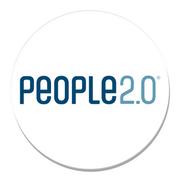



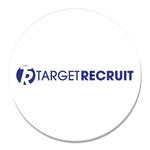
OurAffiliatePartners
Maynard & Barrett
Mercury
One Recruiter
Platinum WFM
Ready Set Recruit Legal
RecView
SafeScope
SDP Solutions
Sovereign Private
Staffing Industry Metrics
WorkPro
Younique Coaching
BecomeanAPSCoPartneratwww.apscoau.org
